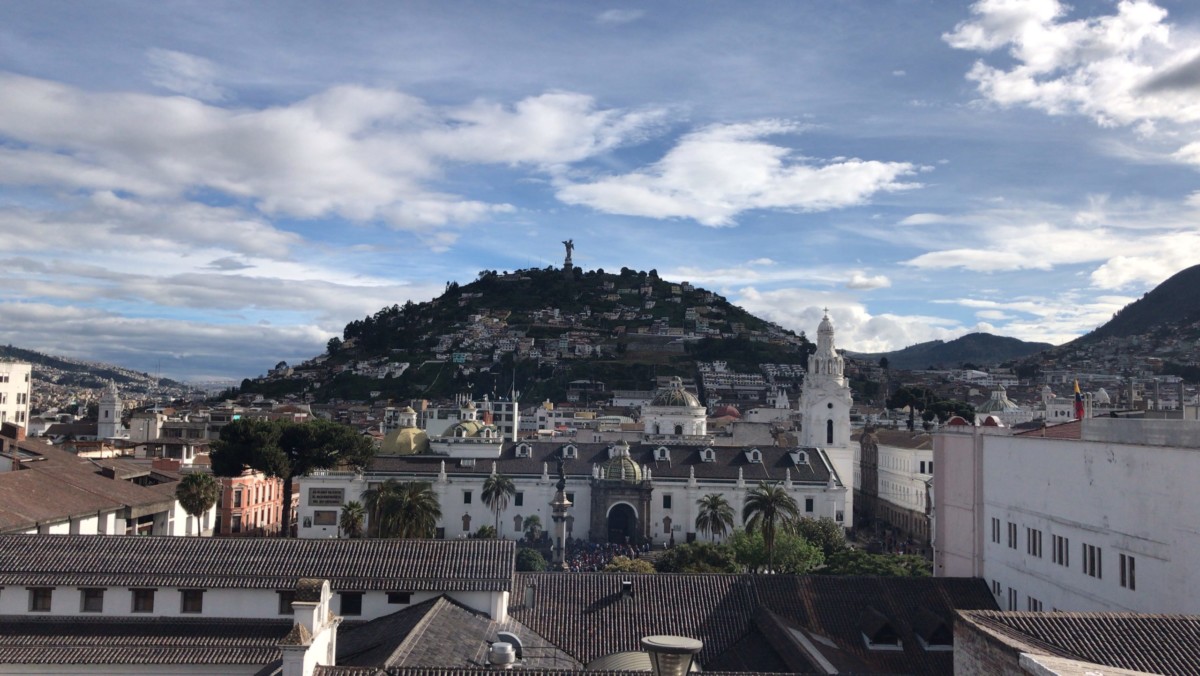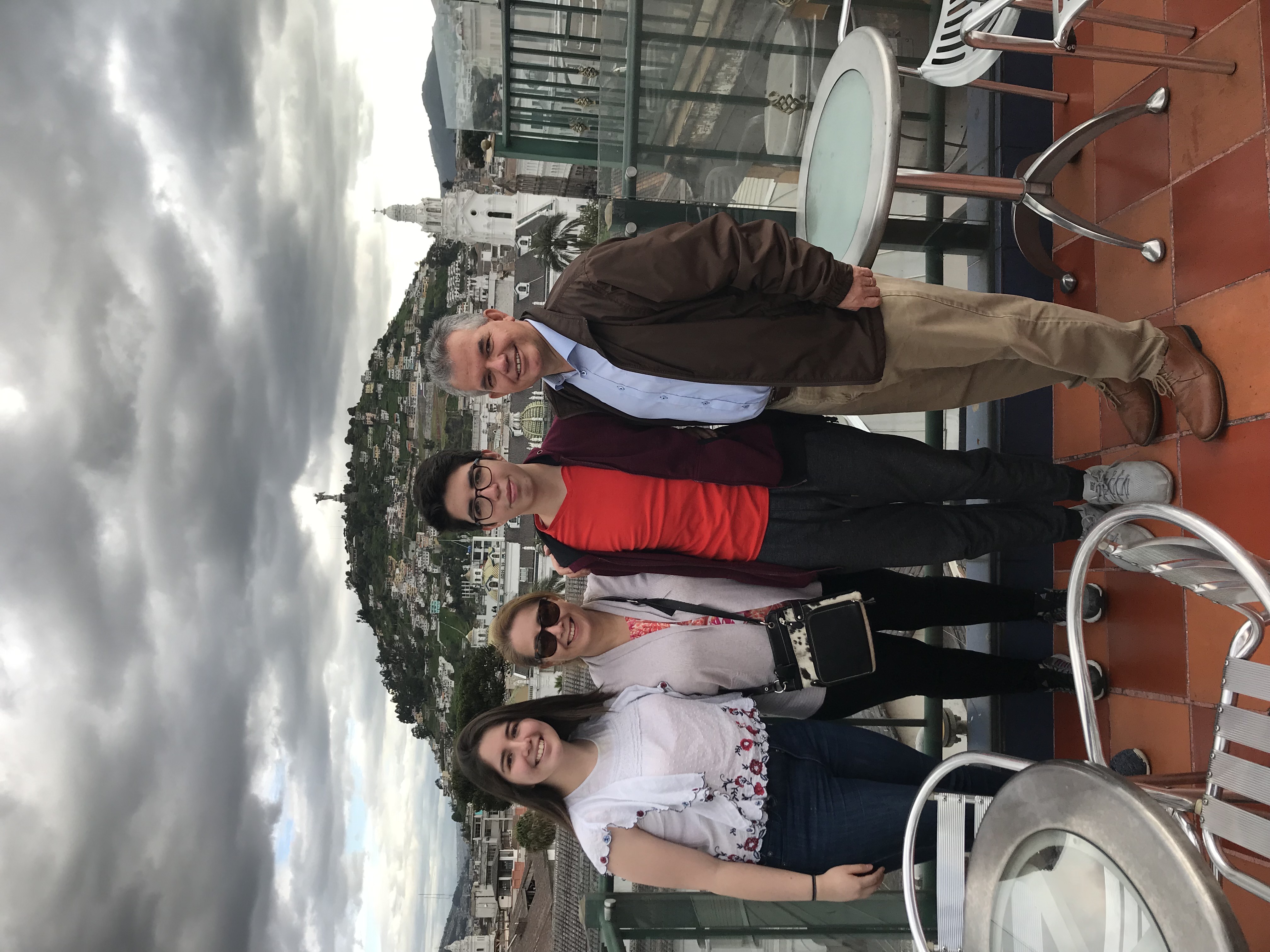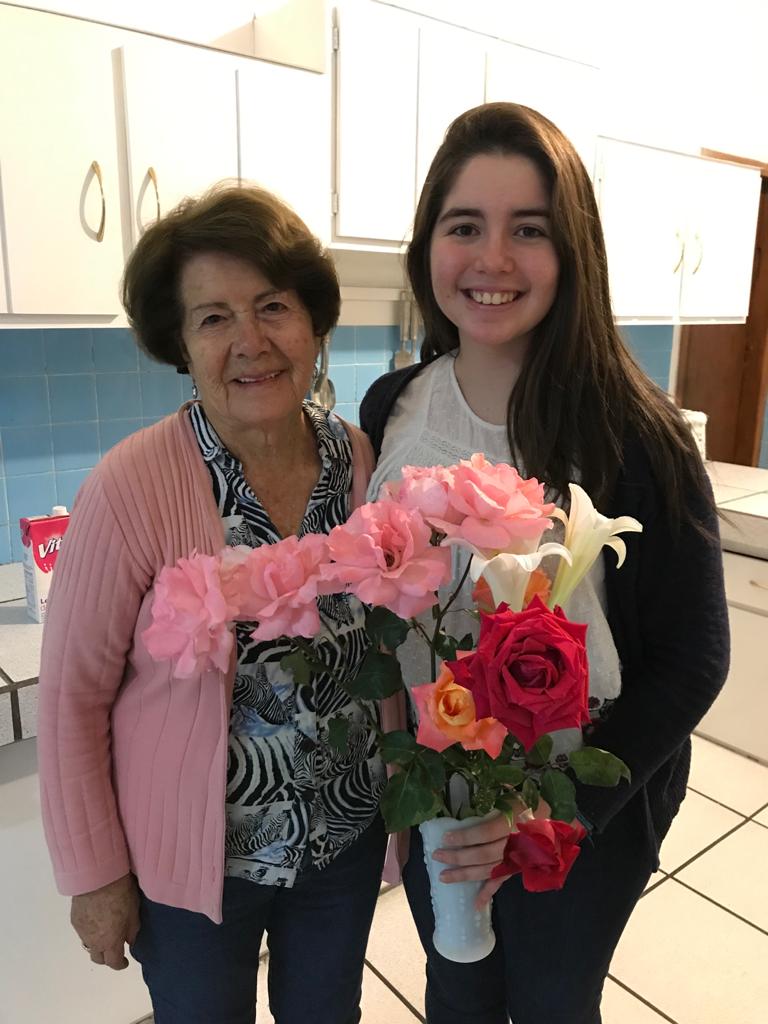

When I think of the word home, I think of Saturday lunches with my parents and my dog at my home in Quito, Ecuador.
My pa, ma, ñaño, my brother and I sit at the kitchen table in our pyjamas and we can see the city and the mountains surrounding it from the kitchen.
Mom has lunch ready at 2 p.m. She said she is lazy on Saturdays and wants to cook something simple, like rice with her grandmother’s rice recipe and mix tuna with cherry tomatoes, radish, avocado, onion and lemon juice. My brother doesn’t like tuna so he eats a fried egg instead.
While we eat, my dog Lana whines and asks my mom for food because she knows my mom will give in.
We talk about school, my parents’ work, family and current affairs.
After we finish eating, my dad becomes the Latino version of Ellen DeGeneres. He’s good at making impersonations of people by changing his voice and facial expressions. He tells stories of his childhood through his impersonations. One of my favourite stories is when he pretends he is his grandmother, mamita Isabel, asking her grandchildren to eat bread: “Comerás pancito hijito.”

Even if my dad makes the same jokes, my mom and I laugh like it was the first time we heard them. My brother, who also likes to joke, comes up with a couple of his own, some of which were impersonations of me, my dad or my mom.
Like most families in Ecuador, my family is Catholic. When I think of home, I think of hugging my dad and my mom in mass during the part of the ceremony where people say peace. We are sentimental people and cry every time we hug.
Home also means getting together with family, but it’s not your average get-together.
Latin American society is family-oriented and families are often big. My dad has eight siblings and if my finger-count is correct, I have 17 immediate cousins. Everyone in my family is chatty, likes to dance, play sports, sing and have a good time. I’ve had more fun dancing with my family at a wedding than at the club with my friends.
When I was ten, my family organized the Chávez Olympics, a two-day competition where the whole family was divided into groups and competed. Each group had its own personalized shirt. We slept in bunk beds in cabins, played soccer, recreational games and sang karaoke. I still have a bronze medal I won at one of the “games.” When my family goes big, it actually means going home.
On my mom’s side, the Sevillas, home means visiting Mimi, my grandma, on Sundays and eating typical homemade meals, like locro de papa, a potato soup with cheese that filled my belly so I didn’t have appetite until the next day.
Mimi always gets the family together in November for colada morada, a beverage prepared for the Day of the Dead, which goes with guaguas de pan, a traditional bread made in the shape of infants and filled with jam or dulce de leche.


On my dad’s side, we would eat, chat and laugh a lot. Whenever we would get together with my cousins, we would play papelitos, which is similar to charades, but better. It’s become a trademark in our cousin gatherings. Whenever I’m surrounded by my family, I feel warm and like I belong.
Since I can remember, we celebrate my mom and her twin sister’s birthday every May at Mimi’s house. We eat outside, by her garden, in two tables: one for the adults and the other one for the “kids,” my cousins and me.
Now that I’ve been away from Quito for almost three years, I don’t get to make memories like these as often as I would like to. But I hold the ones I have close to my heart. Whenever I go back, Quito starts at the gate of the flight that will take me home. While I wait to be called for boarding, I sit and hear people speaking in Quiteño accent around me. It feels like hugging someone I haven’t seen in a long time, foreign at first but comfortable and warm once I recognize it.
But I know I’m in Quito for sure when I see the mountains from the window seat in the plane – the same mountains I see with my parents and my brother on Saturday afternoons while having lunch at the kitchen table.
